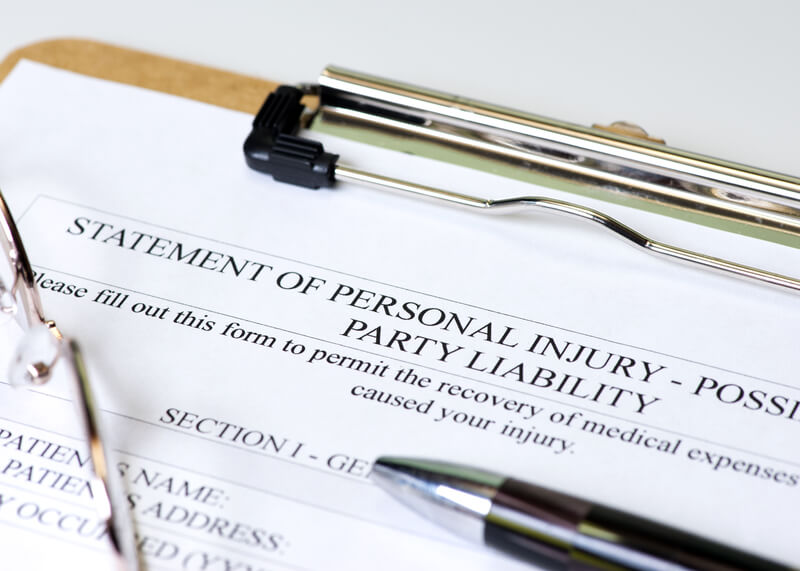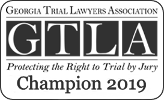How to File a Wrongful Death Claim
Every injury or accident case deserves care, respect and tenacity in legal representation. But for families going through the unimaginable—the death of a loved one—it’s incredibly challenging to face the grief and shock of a loss and manage the complexities of a civil suit.
At Litner + Deganian, wrongful death claims are some of the most difficult we handle, and we take our responsibility to families seriously. Understanding the process can help families feel more secure in a time of upheaval. While it’s hard to face the prospect of a sometimes-lengthy legal case after a family member’s passing, a wrongful death claim can create accountability and lessen the financial hardship of losing a loved one.
How does a wrongful death lawsuit work?
Wrongful death lawsuits differ from both personal injury claims and criminal cases. In Georgia, a family, dependent, or estate can file a wrongful death claim when someone dies as a result of an accidental or intentional action. Wrongful death actions could include:
- A death caused by a car accident, or other forms of motor vehicle accident, involving a negligent driver, a defective product or medical malpractice
- A death caused by an assault or battery
Wrongful death cases have a strict statute of limitations (more on that later), and they require extensive evidence and careful financial calculations. While some attorneys will practice in multiple areas, including personal injury cases, wrongful death claims require specialized expertise. It’s important to work with a wrongful death attorney and law firm that has experience representing families in similar situations.
After ensuring that the family is aligned in its goals and the estate is in order, the attorney will gather evidence and procure expert witnesses if needed. The experienced wrongful death lawyer will also estimate damages, forecasting lifetime earnings and benefits, as well as talking to family members to learn about the life lost (also known as loss of companionship). The goal is to calculate the “full value of the life” of the deceased through various types of damages.
Once the attorney builds a case and files suit, negotiations begin. The timeline from that point on depends heavily on the defendant—the individual or business whose actions led to the death. Large corporations might try to push a case all the way to court to avoid a quick settlement, sometimes settling just before a jury hears the case. Other defendants may take more responsibility or may wish to avoid a lengthy negotiation, leading to a faster settlement process.
Ideally, a strong, well-prepared case will lead to a fair, timely settlement, allowing the family to move past the financial challenges of losing a loved one and focus on healing and mourning the loss. If a settlement can’t be reached, however, the wrongful death lawyer will take the case to court.
Who can file a wrongful death lawsuit?
It’s helpful when a family works together to choose a wrongful death attorney and supports each other through the suit. But Georgia state law also has a clear-cut hierarchy regarding plaintiffs in wrongful death cases.
First, though, a note on language. In wrongful death law:
- The deceased is referred to as the decedent.
- The person or entity believed to be responsible for the death is the defendant.
- The family member or estate representative filing the case is the plaintiff.
In Georgia, the surviving spouse files a wrongful death suit. If there’s no spouse, the decedent’s child or children may file suit. If there is no spouse, and if there are no children, the decedent’s parent or parents may file. And if there’s no surviving family members, the decedent’s estate executor may file.
What evidence is needed for a wrongful death claim?
A wrongful death case must demonstrate that the defendant caused the decedent’s death, either negligently or intentionally. While a criminal case requires proof beyond a reasonable doubt—necessary since the defendant likely faces a prison sentence or other serious, life-changing consequences—a wrongful death case requires a “preponderance of evidence.” This means the wrongful death attorney has to prove that the defendant was more likely than not responsible for the death, whether it was intentional or negligent.
With an intentional act, this might mean proving that the defendant assaulted the decedent and that the assault directly caused the death.
With a negligent act, the attorney would need to prove that the defendant behaved recklessly or showed a breach of duty in the lead up to a fatal accident or injury.
- In a car crash, this might mean the at-fault driver was texting and speeding before striking another vehicle.
- With a product liability case, this might mean the defendant designed or produced an unsafe product, and that the decedent died as a result of using the product.
- With a medical malpractice case, this might mean the defendant failed to show the same standard of care a peer would have under similar circumstances, and the patient died as a result.
How do you divide a wrongful death settlement?
In addition to proving that the defendant caused the death, a successful wrongful death suit must show that the plaintiff suffered damages as a result of the death. Damages are meant to encompass the full value of the life of the decedent, including:
- The economic value of life, including the earnings, benefits and the childcare or household work and services they would have provided
- The noneconomic value of life, like the love and companionship they offered a spouse, or the guidance they shared with a child
If a case goes to trial, the jury considers damages from the perspective of the person who has died, attempting to place a monetary value on what they’ll miss in life: the chance to graduate college, become a parent, coach a child’s baseball team or tour the world with a beloved partner.
Both economic and noneconomic value calculations are part of the wrongful death claim. Additionally, an estate claim can help cover costs, both tangible and intangible, related to the death. These may include:
- Medical bills from the accident leading up to the death
- Pain and suffering before death
- Funeral expenses
The estate claim is typically brought by the estate’s executor, provided the deceased person had a will.
What is the statute of limitations for filing a wrongful death claim?
Along with the pain and shock of losing a loved one, a sudden death may bring about financial upheaval, childcare concerns, healthcare coverage issues and housing insecurity. For some families, it may feel difficult to move forward with a lawsuit when struggling to manage daily life and family care.
However, there is a strict statute of limitations on wrongful death cases—two years after the date of death.
In cases where the death is also the subject of a criminal case, the statute of limitations pauses until the criminal case is over. The new two-year limit begins when the case resolves, though the process still needs to start within six years of the death.
How long does a wrongful death settlement take?
The attorney will evaluate the defendant once the family is on the same page regarding how to move forward and the estate is in order. Is it an individual, a small business or a large corporation? Are there multiple parties responsible? In cases of product liability, large corporations may want to stretch out the process and avoid quick settlements. Other entities may want to settle quickly to avoid an expensive legal defense. If the defendant is an individual, insurance policy limits will play a large part in how quickly negotiations move forward and what damages, especially economic damages, are even possible.
While there’s no clear timeline for a wrongful death suit, mounting a case quickly is in the family’s best interest. Many wrongful death cases are complex from an evidence-gathering perspective, including medical malpractice claims, product liability and tractor-trailer crashes. Corporate defense attorneys or insurance company attorneys will act quickly to investigate the incident and may try to shift blame and avoid liability. Engaging a wrongful death attorney to begin work on the case can help protect the family’s claim.
Wrongful death claim attorneys
If you’ve lost a family member, you’ll need help navigating the complex process of a wrongful death claim. At Litner + Deganian, we have experienced attorneys representing families through legal action during their most challenging losses. Contact us today for a free consultation and case evaluation.












